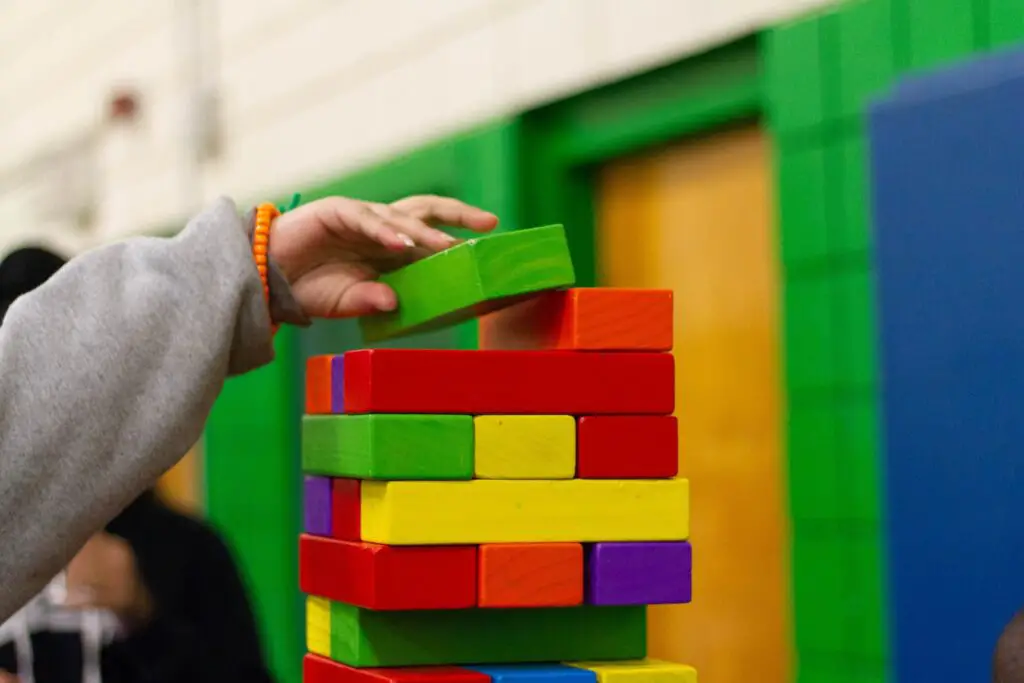If you are passionate about working with children and helping them through the power of play, then this is the perfect career path for you.
Play therapy is a specialized field that combines psychology, counseling, and child development to support young individuals in overcoming emotional, behavioral, or social challenges.
You will need to complete a master’s degree program in play therapy or a related field. Additionally, you must complete supervised clinical experience and obtain certification from a recognized play therapy organization.
In this article, we will explore the necessary steps, qualifications, and skills needed to embark on this fulfilling journey as a Play Therapist. So, let’s dive in and discover the incredible world of play therapy!

What is Play Therapy?
In the field of mental health, play therapy is a powerful therapeutic approach that utilizes play and expressive activities to help children overcome their emotional, behavioral, and psychological challenges.
It allows children to express their thoughts, feelings, and experiences in a natural and non-threatening way, creating a safe environment for healing and growth.
The Definition of Play Therapy
Play therapy can be defined as a form of psychotherapy specifically designed to meet the unique developmental needs of children.
It is based on the understanding that play is a natural and essential means of communication for children, often serving as their primary language.
Through play, children can explore their inner world, process their experiences, develop problem-solving skills, and improve their emotional well-being.
The Role of a Play Therapist
A play therapist is a trained mental health professional who specializes in working with children through play therapy techniques. Their primary role is to create a therapeutic environment where children feel safe, supported, and respected.
By carefully observing and engaging in play sessions, the play therapist gains insight into the child’s thoughts, emotions, and behaviors.
The play therapist uses various play materials, such as art supplies, dolls, puppets, and sand trays, to facilitate the child’s expression and exploration. They may also employ specific play therapy approaches or techniques, such as narrative play therapy or sand play therapy, tailored to the unique needs of each child.
Through empathic listening, reflective responses, and therapeutic interventions, the play therapist guides the child toward positive change and emotional healing.
A play therapist not only works directly with children but also collaborates with parents, caregivers, and other professionals involved in the child’s life. They provide support, education, and guidance to parents, helping them understand their child’s emotional needs and providing strategies for promoting healthy development.
Steps to Become a Play Therapist
Educations and Training
Obtaining the right education and training is an essential first step towards becoming a play therapist. Earning a bachelor’s degree in psychology, counseling, social work, or a related field provides you with a solid foundation for further study and practice. However, to become a certified play therapist, you will typically need to obtain a master’s degree in play therapy or a closely related field.
Several universities and institutions offer specialized master’s programs in play therapy, providing you with the knowledge and skills to work effectively in this field.
During your studies, you will learn about the theories and techniques of play therapy, child psychology, and the importance of creativity in the therapeutic process. It’s important to choose a program that is reputable and accredited to ensure you receive a high-quality education.
Gaining Experience
Alongside your academic training, gaining practical experience in the field of play therapy is crucial. Many master’s programs include supervised clinical placements or internships where you can gain hands-on experience working with children under the guidance of licensed professionals.
These practical experiences allow you to apply the knowledge and skills you have learned in a real-world setting and develop your therapeutic techniques.
Additionally, seeking volunteer opportunities at community centers, schools, or local play therapy organizations can also provide valuable experience and the opportunity to network with professionals in the field. This can help you build a strong foundation and establish connections that may lead to future job opportunities.
Obtaining Certification and Licensure
Once you have completed your education and gained the necessary experience, the next step is to obtain certification and licensure as a play therapist. Certification ensures that you have met the standards and requirements set by professional organizations in the field of play therapy.
The Association for Play Therapy (APT) offers the Registered Play Therapist (RPT) and the Registered Play Therapist-Supervisor (RPT-S) credentials. To become eligible for these certifications, you will need to meet specific education and experience requirements, including a certain number of supervised hours of play therapy practice.
In addition to certification, you will also need to obtain licensure to practice play therapy legally. Licensing requirements vary by state, so it is essential to research the specific requirements in the state where you plan to practice. This may involve completing additional supervised clinical hours, passing an exam, or fulfilling continuing education requirements.
By following these steps and completing the necessary education, gaining practical experience, and obtaining certification and licensure, you can fulfill your dream of becoming a play therapist. A rewarding and fulfilling career awaits, allowing you to make a positive impact on the lives of children and families.

Skills and Qualities of a Play Therapist
Being a play therapist requires a unique set of skills and qualities. Play therapists work with children to help them express their emotions, overcome challenges, and develop important skills. Here are some key skills and qualities that are essential for a successful play therapist.
Understanding Child Development
Effective play therapists have a deep understanding of child development. They are knowledgeable about the various stages of development and the typical behaviors and milestones associated with each stage.
This understanding allows play therapists to tailor their approach to meet the individual needs of each child they work with. Whether it’s recognizing signs of developmental delays or understanding the impact of trauma on a child’s development, a solid understanding of child development is crucial for a play therapist.
Creating a Safe and Supportive Environment
Play therapists create an environment that is safe, supportive, and conducive to therapeutic play. They work to establish trust with the child and create a space where the child feels comfortable expressing themselves.
This may involve setting clear boundaries, creating a calming atmosphere, and ensuring the physical and emotional safety of the child. By creating such an environment, play therapists allow children to freely explore and process their emotions through play.
Communication and Empathy
Strong communication and empathy are essential skills for play therapists. Effective communication involves not only listening to the child but also understanding and interpreting their non-verbal cues.
Play therapists use empathy to validate the child’s feelings and experiences, helping them feel seen and understood. By demonstrating empathy, play therapists build a strong therapeutic relationship with the child, which is vital for the success of the play therapy process.
Communication and empathy also extend beyond working with the child. Play therapists often collaborate with parents, caregivers, and other professionals involved in the child’s life.
They effectively communicate their observations and insights, as well as provide guidance and support to empower parents and caregivers in their role.
Conclusion
Becoming a play therapist requires a combination of education, training, experience, and passion for helping children. It is a rewarding career path that allows you to make a positive impact on young minds and support their emotional and psychological development.
By following the steps outlined you can take the necessary steps to begin your journey towards becoming a professional play therapist.
